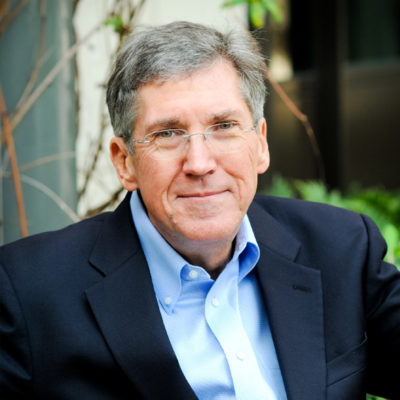How California’s Water Rights Make It Tough to Manage Drought
Summary
Professor Barton “Buzz” Thompson comments on the water rights systems of California and how they affect access during a drought for KQED.
After three years of historically dry and hot weather, the images of California’s drought have become familiar: empty fields, brown lawns, dry stream beds. But for every one of those scenes, there are other parts of the state where water has been flowing freely and the effects of drought are hard to see.
It’s all tied to California’s system of water rights — the complex hierarchy that governs who gets water during a drought and who doesn’t. After unprecedented cutbacks this year that left many farmers scrambling for water, some critics say the hierarchy is a historical relic that makes it harder for the state to deal with drought.
…
“California has one of the most complicated water rights systems in the United States, if not the world,” says Buzz Thompson, professor of law at Stanford University. Thompson is one of the few people in California who can actually explain the intricacies of this pecking order.
…
“Whoever gets to a river first gets the senior right to take water out of that river or stream,” Thompson says.
…
“In a period of drought, it means some people, the junior people, don’t get any water at all,” Thompson says. “And the more senior appropriators may get all of the water they’re entitled to.”
…
“Although that’s our legal system, it doesn’t necessarily amount to a fair system or an efficient system,” Thompson says.
…
It might make more sense in a drought, Thompson says, for everyone to pitch in and cut back equally.
…
“You get a lot of people who rise up in arms,” Thompson says.
…
“What we are looking for is Article 10,” says Buzz Thompson of Stanford Law, flipping through the California Constitution.
“California has a constitutional provision specifically to avoid the problem of people wasting water when other people needed it,” he says.
The provision says, “The waste or unreasonable use or unreasonable method of use of water is prohibited.”
This is powerful language, Thompson says. During a drought, regulators could say that certain water uses are unreasonable and can’t be done, like growing crops that use a lot of water or overwatering our yards.
…
“If we have a really very severe drought that, say, lasted another five years,” Thompson says, “I would be surprised if State Water Resources Control Board and the Governor did not seriously think about adopting a new way of allocating water.”
Read More
